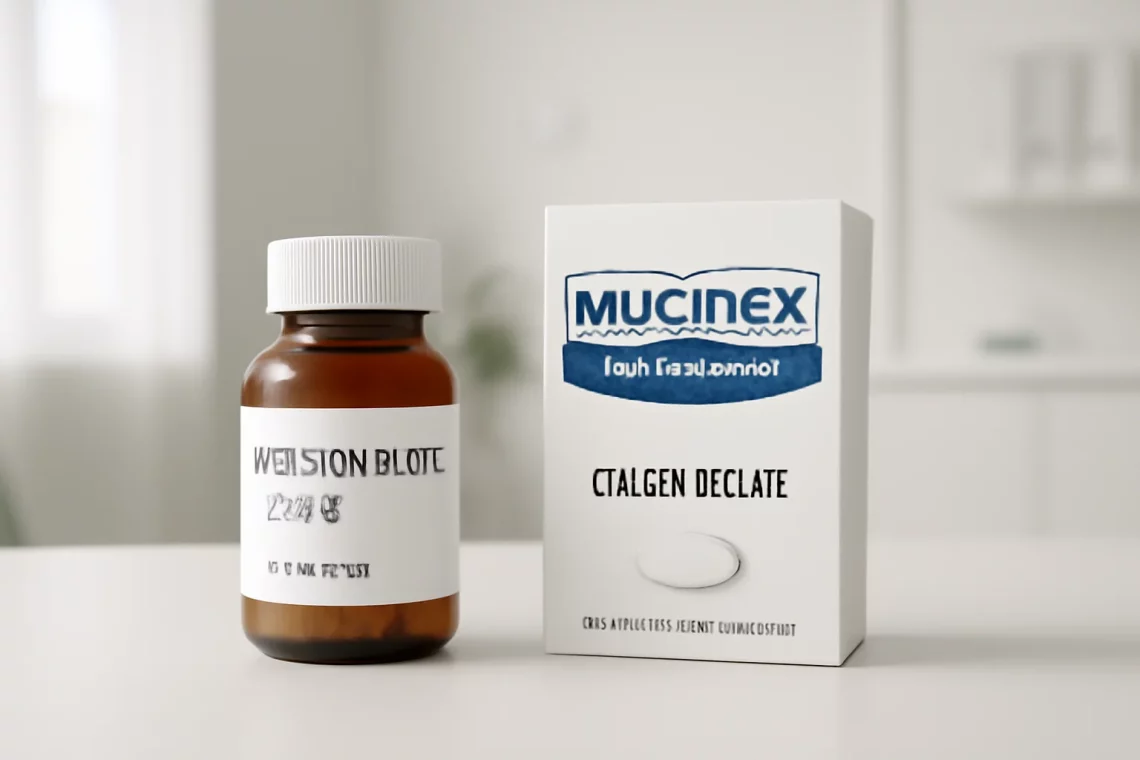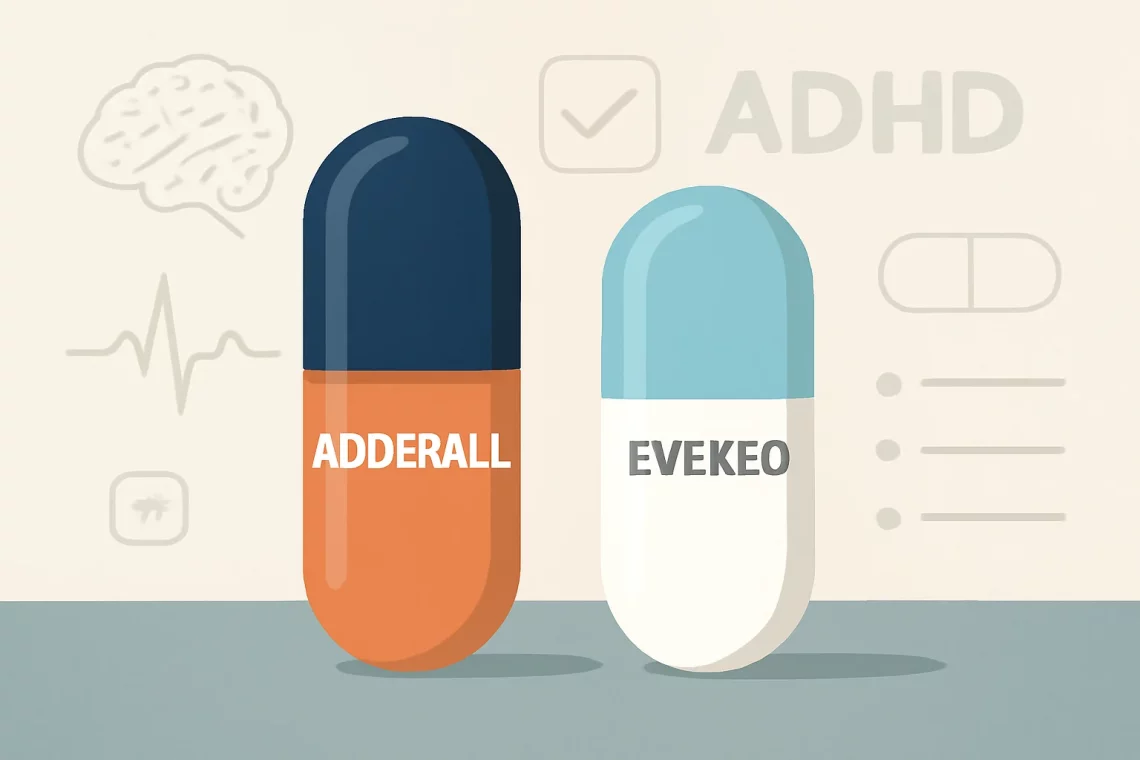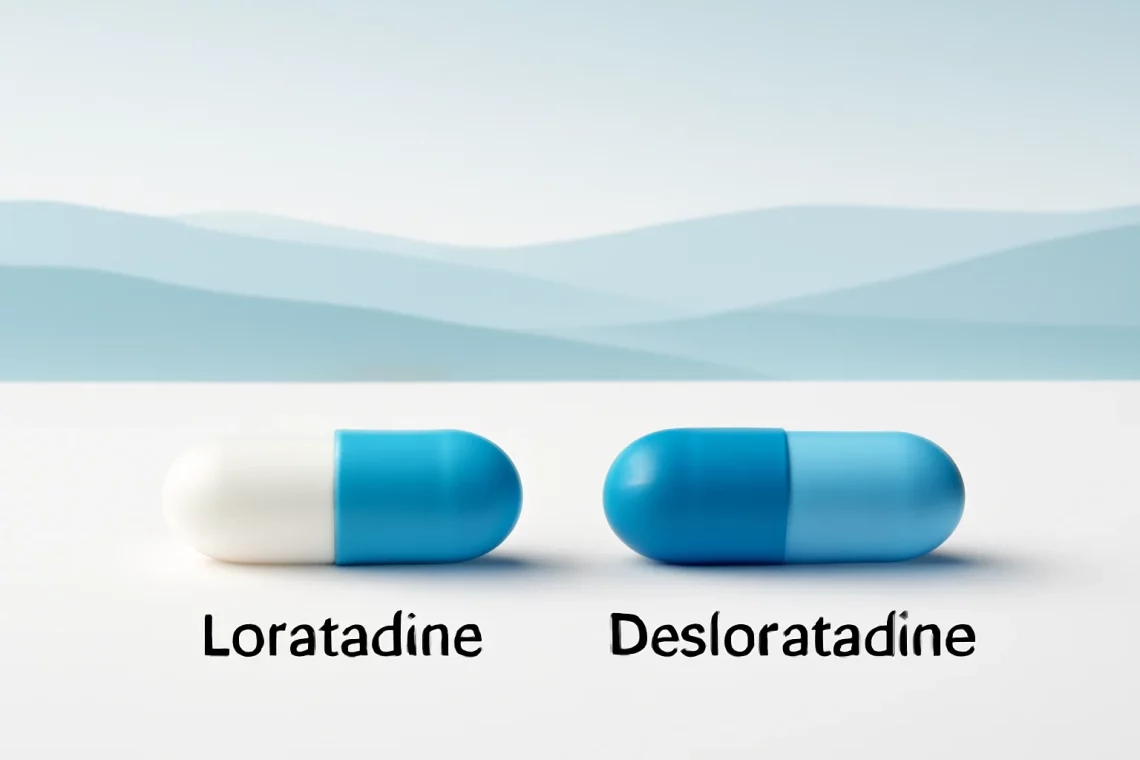-
Dupixent vs Cosentyx: Which Treatment is Right for You?
Dupixent and Cosentyx are two innovative biologic medications that have emerged as key players in the treatment of various chronic inflammatory conditions. Both of these drugs have shown promising results in clinical studies, providing relief to patients suffering from debilitating symptoms associated with conditions such as eczema, asthma, and psoriasis. The introduction of these medications marks a significant advancement in the field of immunology and represents a shift towards targeted therapy that aims to address the underlying causes of these diseases, rather than merely alleviating symptoms. The development of biologics like Dupixent and Cosentyx is rooted in the understanding of the immune system and its role in inflammation. As autoimmune…
-
Adderall vs Concerta: Which ADHD Medication is Right for You?
Adderall and Concerta are two well-known medications commonly prescribed for the treatment of Attention Deficit Hyperactivity Disorder (ADHD). Both drugs belong to a category of medications known as stimulants, which work by altering the levels of certain neurotransmitters in the brain to help improve focus, attention, and impulse control. While they share a common goal of managing ADHD symptoms, their chemical compositions, effects, and potential side effects can differ significantly. Understanding the nuances between Adderall and Concerta can be crucial for patients and caregivers navigating treatment options. The choice between these medications often depends on individual responses, lifestyle considerations, and specific symptoms. As ADHD awareness continues to grow, so does…
-
Meloxicam vs Piroxicam: Which Anti-Inflammatory Drug is Better?
Meloxicam and piroxicam are two widely used nonsteroidal anti-inflammatory drugs (NSAIDs) that play significant roles in the management of pain and inflammation. Both medications are commonly prescribed for conditions such as arthritis, muscle pain, and other inflammatory disorders. Their effectiveness in alleviating pain makes them popular choices among healthcare providers, but they differ in their chemical structures, mechanisms of action, and potential side effects. Understanding these differences is crucial for patients and healthcare professionals alike, as it can influence treatment decisions and patient outcomes. In the realm of pain management, the choice between meloxicam and piroxicam is often dictated by the specific needs of the patient, including their medical history,…
-
Benzonatate vs Mucinex: Which Cough Relief is More Effective?
When it comes to managing coughs and respiratory discomfort, many people find themselves navigating a wide array of over-the-counter medications. Among these, Benzonatate and Mucinex have gained popularity for their effectiveness in alleviating symptoms associated with colds, allergies, and respiratory infections. Both medications serve distinct purposes and work in different ways, making it essential for consumers to understand their unique properties and potential uses. Benzonatate, a non-narcotic cough suppressant, can help individuals struggling with persistent coughs by targeting the cough reflex in the brain. Meanwhile, Mucinex, which contains guaifenesin, is primarily an expectorant that aids in thinning mucus, making it easier to expel from the lungs. This difference in action…
-
Benzonatate vs Tessalon Perles: Which Cough Suppressant is Better?
Benzonatate and Tessalon Perles are two commonly prescribed medications used to manage cough symptoms. While both have similar applications, they differ in their active ingredients, mechanisms of action, and side effects. Understanding these differences can help patients make informed decisions about their treatment options. Coughing is a reflex that helps clear the airways of irritants, but chronic coughing can be uncomfortable and disruptive. Consequently, effective treatment is crucial for those suffering from persistent coughs due to various underlying conditions, such as allergies or respiratory infections. In recent years, the demand for effective cough suppressants has led to a more significant focus on medications like benzonatate and Tessalon Perles. As patients…
-
Adderall vs Evekeo: A Comprehensive Comparison of ADHD Medications
Adderall and Evekeo are two medications primarily used to treat Attention Deficit Hyperactivity Disorder (ADHD) and narcolepsy. They both belong to the stimulant class of drugs and share similar mechanisms of action, but there are notable differences between them that can affect their efficacy, side effects, and overall patient experience. As the prevalence of ADHD and related disorders increases, understanding these medications becomes essential for patients, caregivers, and healthcare providers. The choice between Adderall and Evekeo can significantly impact an individual’s treatment journey. Factors such as dosage, formulation, and individual patient response can influence which medication is the most appropriate choice. Furthermore, both medications have distinct characteristics that can cater…
-
Levocetirizine vs Desloratadine: Which Antihistamine is Better?
Levocetirizine and desloratadine are both antihistamines that play a crucial role in managing allergic reactions and symptoms associated with conditions like hay fever and chronic urticaria. As allergies become increasingly prevalent in today’s society due to environmental factors and lifestyle changes, understanding the options available for treatment is essential. Both medications are designed to alleviate symptoms such as sneezing, runny nose, and itchy eyes. However, they come with distinct characteristics, mechanisms of action, and potential side effects that may make one more suitable than the other for individual patients. In the quest for effective allergy relief, patients often find themselves choosing between various antihistamines. Levocetirizine, a third-generation antihistamine, is known…
-
Loratadine vs Desloratadine: Key Differences Explained
Loratadine and desloratadine are antihistamines widely used for the treatment of allergic conditions. Both of these medications help alleviate symptoms associated with allergies, such as sneezing, runny nose, and itchy eyes. They belong to a class of drugs known as second-generation antihistamines, which are known for causing less sedation compared to first-generation antihistamines. This distinction makes them more appealing to individuals who need to manage allergy symptoms without the drowsiness that often accompanies other allergy medications. Understanding the differences and similarities between loratadine and desloratadine is crucial for those seeking effective allergy relief. While they share a common purpose, the way they act in the body and their specific applications…
-
Wellbutrin vs Viibryd: Comparing Effectiveness and Side Effects
In recent years, mental health has become a focal point for both healthcare professionals and the general public. With increasing awareness around conditions such as depression and anxiety, the search for effective treatment options has intensified. Among the various medications available, Wellbutrin and Viibryd have emerged as popular choices for managing symptoms associated with depression and anxiety disorders. These medications represent different classes of antidepressants, each with unique mechanisms of action, side effects, and benefits. Understanding the distinctions between Wellbutrin and Viibryd is crucial for patients and healthcare providers alike. The choice of medication can significantly affect a patient’s quality of life, highlighting the importance of informed decision-making in treatment…
-
Loratadine vs Chlorpheniramine: Which Antihistamine is Better?
Allergies can be a significant nuisance for many individuals, leading to symptoms such as sneezing, runny nose, and itchy eyes. In an effort to combat these discomforts, various antihistamines have been developed to alleviate allergic reactions. Two common medications frequently discussed are loratadine and chlorpheniramine. Both of these drugs serve the primary purpose of relieving allergy symptoms, but they belong to different classes of antihistamines and exhibit distinct characteristics. Understanding the differences between loratadine and chlorpheniramine is essential for making informed decisions about allergy management. Factors such as efficacy, side effects, and duration of action can vary significantly between these two medications. By exploring their unique properties, individuals can better…






































